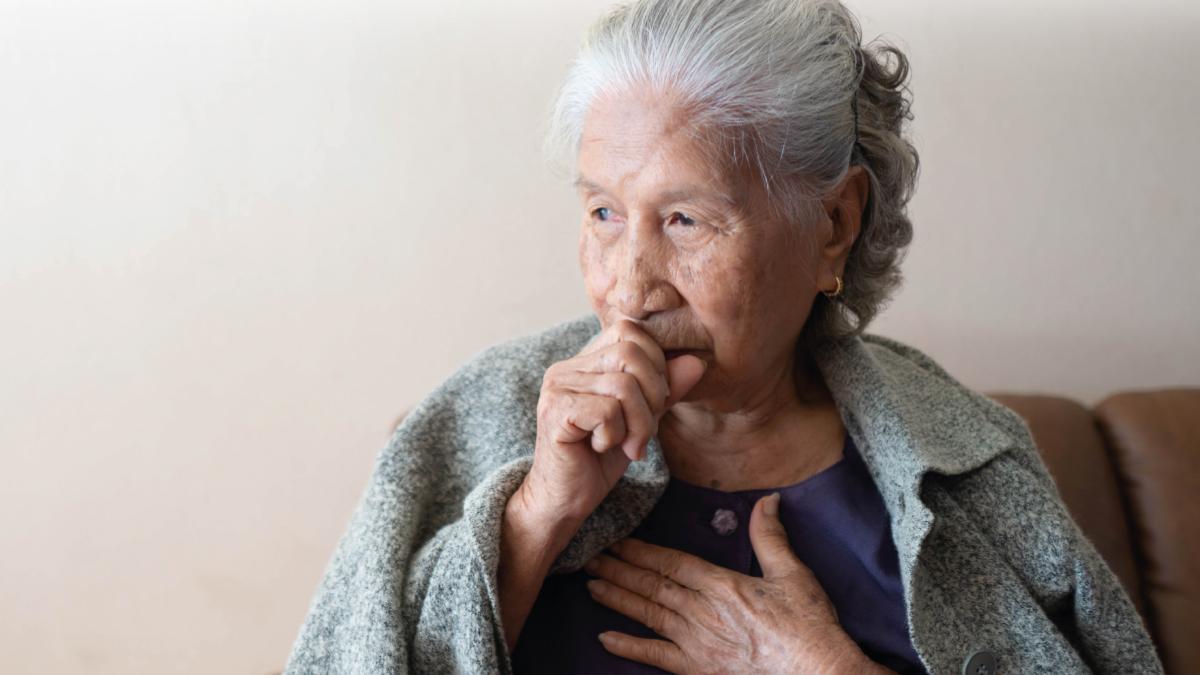New guidance on the care of patients with respiratory infections could prove useful to all physiotherapists, says Rachael Colclough, Chair of the ACPRC

Updated advice from NICE provides a useful resource for all physiotherapists, says Rachael Colclough, Chair of The Association of Chartered Physiotherapists in Respiratory Care (ACPRC). NICE recently published an updated guideline [NG237] on the suspected acute respiratory infection in over 16s: assessment at first presentation and initial management.
The updates to the guideline provide robust and practical advice for the management of suspected acute respiratory infection (ARI).
Physiotherapists are often involved in the care of patients with a suspected respiratory infection. Respiratory physiotherapists, of course, will have a high-level expertise and skill to manage these patients.
However, these guidelines are a useful resource for all physiotherapists as patients can present with respiratory symptoms in GP practice, outpatient clinics, and in the community where a suspected respiratory infection might be identified.
The priority and emphasis of these guidelines is to ensure an assessment is completed to screen for sepsis and to safety-net concerns urgently to the appropriate healthcare services. Specifically, these guidelines provide recommendations for when signs and symptoms of respiratory infection are identified.
Virtual wards and remote assessments
The guidelines offer advice when using remote assessments. Also outlined are point of care testing using rapid tests for triage and then advice to prescribers to adhere to appropriate antibiotic stewardship with high awareness of targeted prescription.
The management of ARI under the delivery of virtual wards is a rapidly growing area of our healthcare following plans to reform the delivery of emergency medicine find out more here from this leaflet titled 'Combined adult and paediatric Acute Respiratory Infection (ARI) hubs (previously RCAS hubs)' and the NHS England Guidance note: virtual ward care for people with acute respiratory infection including chronic obstructive pulmonary disease.
The guideline also clearly emphasises that antibiotics should not be prescribed routinely based on remote assessment alone, with some sensible justification around when remote prescribing might be considered necessary in specific circumstances.
It also highlights the limitations of technology-enabled virtual wards where health inequities might be exacerbated. It is noted that in the absence of suitable evidence base for remote assessments for people with suspected ARI recommendations are based on clinical experience.
The guideline gives recommendations for further research about the accuracy of early warning scores NEWS2 and CRB65 when applied to remote assessment. Certainly, there was healthy debate at the ACPRC sponsored symposium ‘Virtual Ward- Policy Pathway and Patient’ at this year’s CSP England Conference, held in Birmingham. The discussion centred around point of care testing, the role of lung ultrasound, remote support from virtual ward teams, and the benefits of physiotherapy being very much part of these expanding services.
The guideline highlights that evidence does not yet provide an economic benefit to POC testing but at present a clinical assessment was noted to be more reliable to determine if antimicrobials is required. ACPRC is pleased to have the opportunity to contribute to these guidelines.
NHS England: new guidance on virtual ward care for respiratory infections
NHS England has also recently released updated guidance caring for people with acute respiratory infections
The guidance supports implementation led by integrated care boards and delivery by appropriate providers as they seek to expand virtual ward capacity for people with acute respiratory condition care needs.
The guidance states that a safe and robust virtual ward needs to be staffed for a minimum of 12 hours a day (8am to 8pm), seven days a week. Operating procedures should be in place to ensure out of hours support is available so that patient safety is maintained, and any deterioration managed 24 hours a day.
Additionally, the ARI virtual ward should be led by a named consultant (including a nurse or allied health professional consultant) or suitably trained GP, with access to timely specialist advice and guidance.
ACPRC also had a strong participation in developing this new guidance, and Racheal says: ‘The key point in this guidance is that the lead of a virtual ward can be an AHP consultant, and the hours should be 12 hours a day, seven days a week and offer out of hours cover.
Number of subscribers: 1
